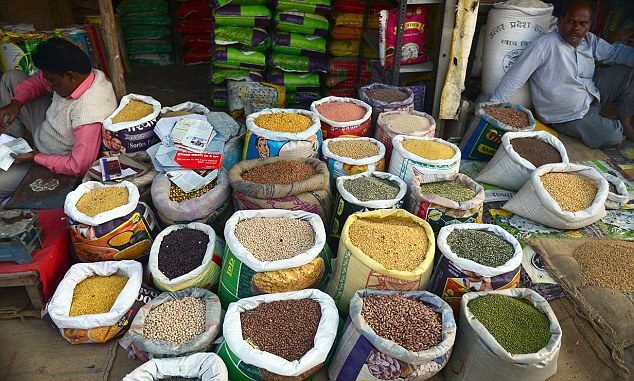
The government is exploring a strategic route to control the spiralling price of pulses, which has now risen to approximately Rs 180 per kg.
Ahead of PM Narendra Modi’s visit to a number of African countries in the first week of July, a delegation of senior government officials will visit to look at ways to improve the scope of contract farming, and the importing of pulses.
In a further effort to control price rises, key intelligence agencies – including the intelligence wing of the revenue department – have been told to halt the illegal black market for pulses
PM Modi is scheduled to visit four African nations – Tanzania, South Africa, Kenya and Mozambique.
A senior government official said Modi is expected to seek further strengthening of India’s economic and maritime ties with these countries.
The official said that ahead of the visit, a delegation may visit Mozambique and other countries to explore the possibility of growing pulses through contract farming.
The government is working on both short-term and long-term strategies to control the rising prices of food grains, including pulses.
Exploring the option of contract farming with countries like Mozambique, Tanzania and Malawi is a long-term strategy.
However, the government is looking for a permanent strategy to fill the gap between insufficient supply, and increased demand.
Officials said the government will explore the option to take land for contract farming with the involvement of private players.
Officials say the demand in India is around 230-240 lakh tonnes, whereas the supply is approximately 170 lakh tonnes.
With each passing year, the demand for pulses increases by a million tonnes, which makes imports necessary.
Officials said food security is also a common concern for India and Africa.
India being the biggest producer of food-grain and horticulture crops could help the African continent develop its agri-sector.
Diplomats from both sides have sought greater cooperation in agriculture and agro-processing, which would have a great bearing on the food security situation in Africa and India.
In boosting Africa’s agriculture production, India too can meet its food needs with imports from Africa, especially pulses, where India faces huge shortfall, added the official.
Urad dal was selling for as much as Rs 196 per kg, while chana was also seen moving closer to Rs 100 per kg level.
Tur dal continued to rule high at Rs 166 per kg, while moong and masur were being sold at Rs 125 and Rs 105 per kg, respectively.
In some high-end markets in cities like Mumbai and Delhi, the price of pulses was even higher.
Concerned over the rising prices, the consumer affairs secretary held a meeting with officials from the Department of Revenue Intelligence (DRI), income tax department, the Enforcement Directorate, and the Intelligence Bureau (IB) last week.
Moreover, he also interacted with state government officials from Uttar Pradesh, Maharashtra, Haryana, Rajasthan, and Delhi via video conferencing and asked them to be alert to hoarders.
The possibility of black marketing and illegal trading cannot be wished away as hoarders try to exploit the situation to make a profit, officials said.
Source: Daily Mail

Leave a Reply